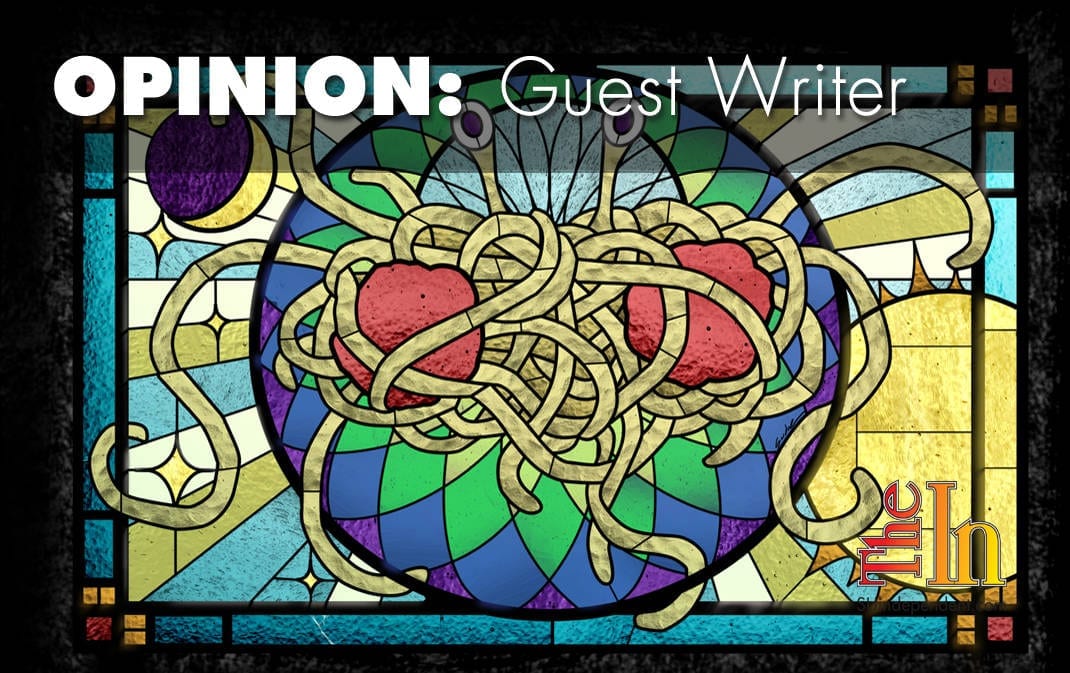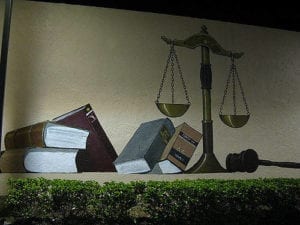
I’m an atheist. I’m not usually highly vocal about it, and don’t think it really has much bearing on whether my thoughts and opinions are valid. I get into religious debates once in a while, and I can be as condescending as anyone arguing a position they hold as superior. I’m not perfect, but I still have a good moral and ethical code. I know the difference between right and wrong. I work with children, prop up people in my community, and try to do good things for others every day. “Atheist” doesn’t mean “evil.”
I was listening to one of my favorite podcasts, Reply All, recently. Their story was about Paul Modrowski, a life inmate at a maximum-security prison, who writes a blog by mailing handwritten posts to his mother who then types them up and posts them. When he identified himself as an atheist in one of the posts, she editorialized because she “didn’t want people to think he’s evil,” implying that atheism is a greater evil than murder.
This is not a self-contained incident. If I tell people I’m an atheist, regardless of any legitimate accomplishments or influences in my life about a third of them will immediately change their opinions on me significantly.

I don’t think religion or religious people are evil. I grew up in the church, so much so that I became a youth leader and was asked to represent our congregation for a regional meeting of the larger church body (called a synod).
I think the experience of faith both in and out of the service and fellowship in the church is totally valid and worthwhile for plenty of people, and I don’t find them at fault for seeking that out. What I do find them at fault for is wholeheartedly ignoring the new commandment given by Jesus in the New Testament: “Love your neighbor as yourself.”
How can you show something other than love to a neighbor who’s done nothing but believe differently than you do? It’s the golden rule — if you don’t want people to hate you for what you believe, maybe don’t hate other people for what they believe. That golden rule and the idea of being Christlike or asking “What would Jesus do?” were probably the biggest impacts on my personal ethics that I still carry from the church. Granted, now I think less in terms of what Jesus would do and more of what an ideal version of myself would do.
Contrary to what some people think, it is entirely possible to have a firm grasp on ethics without having a religious text or leader to adhere to as a guide. If you break down most of the teachings of the church into colloquial language, most of it seems like common sense: Don’t kill people, don’t lie, don’t steal, respect your elders, respect your significant other, being jealous sucks, take some time to relax and reflect. It’s about half things that one should inherently know not to do and half things that you learn pretty quickly not to do based on natural consequences.
Still, I meet people who think that because I don’t follow exactly the list and wording of their commandments I’m a bad person and will burn forever in Hell. There are people like Modrowski’s mother whose fear and hatred for atheists has led her to refuse to allow her son his own identity. At one point, she even says, “I’m not telling the world my son thinks he’s an atheist,” even going so far to refuse him his own identity after she already manipulated his words in his blog post all just because she has a particularly colorful opinion about atheism.
 Maybe I’ll never meet you, reader, but if you’re a Christian of any denomination, I have something I want to ask of you. Next time you meet an atheist, don’t revile them for their different beliefs. You can think and believe they’re going to Hell because that’s what the Bible says will happen to nonbelievers, but don’t mistake that for an assessment of their character. There have been bad seeds in the church, and there have been saintly atheists, too. Give people a chance to show you who they are through word and deed, and remember that our beliefs don’t always define our hearts. Consider what Jesus would do. I think almost every time he would listen to and love an atheist, openly. Hopefully, we atheists can do the same in return.
Maybe I’ll never meet you, reader, but if you’re a Christian of any denomination, I have something I want to ask of you. Next time you meet an atheist, don’t revile them for their different beliefs. You can think and believe they’re going to Hell because that’s what the Bible says will happen to nonbelievers, but don’t mistake that for an assessment of their character. There have been bad seeds in the church, and there have been saintly atheists, too. Give people a chance to show you who they are through word and deed, and remember that our beliefs don’t always define our hearts. Consider what Jesus would do. I think almost every time he would listen to and love an atheist, openly. Hopefully, we atheists can do the same in return.






